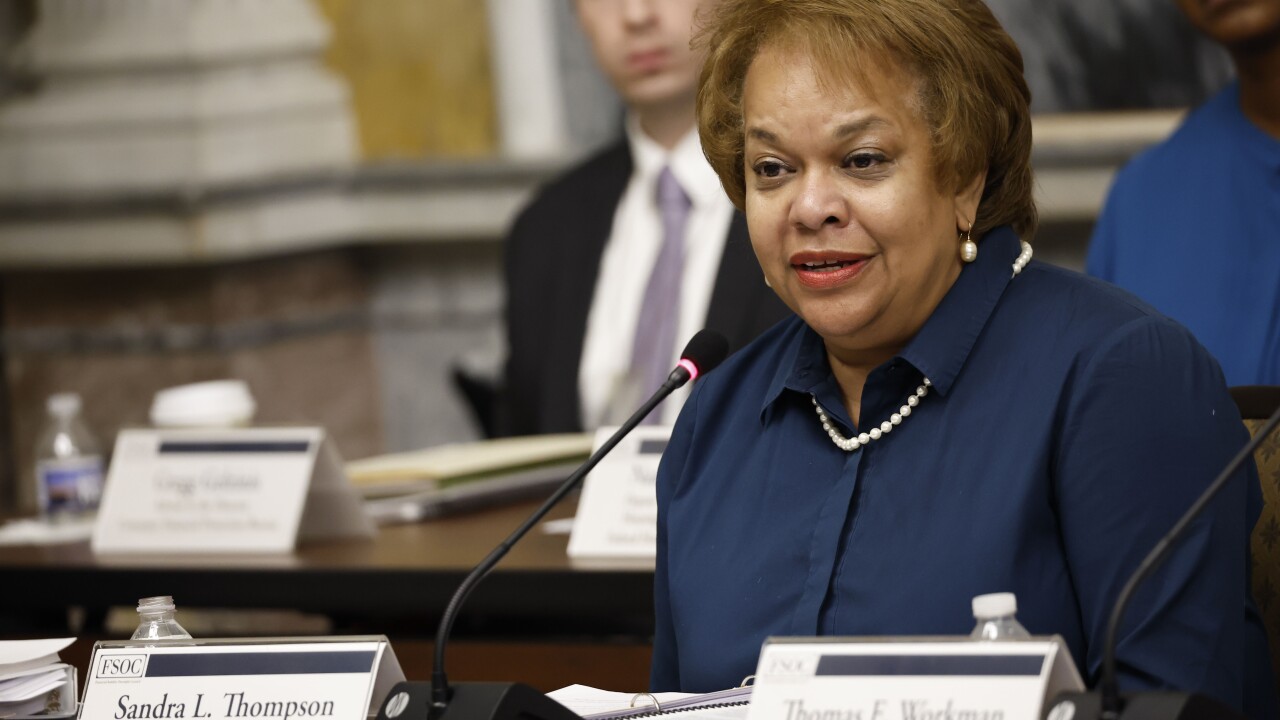
The White House said that it would announce an acting director and a permanent successor "at the appropriate time." It seems likely that it will want to at least install an interim head as soon as Cordray leaves. If not, David Silberman, the agency's acting No. 2, would take over, a prospect that the Trump administration would probably like to avoid.
That could lead to some interesting choices. Under the Federal Vacancies Act, it appears that an acting director must come from the ranks of those already confirmed by the Senate for a different position. That limits who the Trump administration could tap, though there's some leeway there for an appointee to pick his or her own designate to handle agency responsibilities.
The issue of a permanent director, meanwhile, is liable to be a hot topic going forward. The Trump administration has been slow to nominate banking regulators. It only recently got Randal Quarles confirmed to the Federal Reserve Board, and its second regulator, Joseph Otting, is set to be confirmed as early as Wednesday as comptroller of the currency. As a result, it could take some time before the White House settles on a CFPB nominee.
One thing is clear. Whomever is chosen, Democrats will be looking to grill them hard. Sen. Elizabeth Warren, D-Mass., warned Wednesday that the CFPB is "no place for another Trump-appointed industry hack." To be sure, Democrats can do little to stop the ultimate choice. Given recent Senate changes, the minority party can no longer filibuster nominees. Still, Democrats will likely scrutinize the choice.
Following is a guide to the top names being discussed:

Interim director: Treasury Secretary Steven Mnuchin
Indeed, it seems likely that if Mnuchin is chosen, he would likely appoint a Treasury official to act in his stead in the day-to-day operations of the CFPB. This would ensure the Trump administration has full control over what CFPB does — and doesn't do — until an independent director in nominated and confirmed.
Treasury officials likely to be considered for that role include Craig Phillips, a counselor to Mnuchin, and Jared Sawyer, a deputy assistant secretary of financial institutions policy at Treasury.

Interim director: Office of Management and Budget Director Mick Mulvaney
But with so few Trump appointees who have been Senate confirmed, the ranks of potential acting directors isn't long.

Interim director: David Silberman
If that occurs, however, it doesn't seem likely to last long. Silberman will be seen as following in Cordray's footsteps. Since the administration has been clear that it wants to begin easing consumer protection regulations, effectively keeping the status quo wouldn't make sense.

Director: Todd Zywicki
It's not hard to see why. Zywicki has been an outspoken critic of the CFPB. He
"The CFPB is likely to raise the price and reduce access to credit, thereby harming the very consumers it was founded to protect," he wrote.
His nomination would be praised by Republicans in part because he agrees with criticisms that the agency's structure leaves it unaccountable. He has endorsed replacing the single director with a five-person board, among other changes.
He would likely be fiercely opposed by Senate Democrats, but without enough votes to stop him, that would not be a major impediment.

Director: Mark Calabria
Before joining the administration earlier this year, Calabria ran the financial services policy arm of the Cato Institute. Before that, he was a top aide to the Senate Banking Committee under former chairman Richard Shelby, R-Ala. Calabria was in the trenches for Republicans during the Dodd-Frank Act debates and has been an outspoken advocate for housing finance reform.
Though he would likely draw opposition from Democrats, Calabria would come to the job with an in-depth knowledge of recent banking policy.

Director: Rep. Jeb Hensarling, R-Tex.
For one, the agency job will be vacant next month, while Hensarling is not due to retire from Congress until the end of next year. It seems unlikely that Hensarling would give up the chairmanship of the House banking panel when he still has time to enact new legislation.
Still, his name has been discussed, given his outspoken views on the CFPB. Hensarling has attempted to effectively gut the agency as part of his Financial Choice Act regulatory relief bill, a move that would not endear him to CFPB employees if he were picked as director. Yet Republicans would be assured that the bureau would be reined in.

Director: Keith Noreika
It led to accusations and counter-accusations about whether the CFPB rule would hurt consumers. Ultimately, the Senate rejected the rule, which led Noreika to take a victory lap of sorts.
If he is nominated, Democrats would surely fight a Noreika appointment as hard as possible. Democrats have come to loathe Noreika, even though he's only been in office for a little more than six months, and would view him as hostile to the CFPB's work.

Director: Former Rep. Randy Neugebauer, R-Tex.
At the time it was seen as proof that the administration was considering ousting Cordray — a fight it ultimately decided against.

Director: Former Rep. Scott Garrett, R-N.J.
But the former congressman has had a tough time during his confirmation process for head of the Ex-Im Bank. Just last week, he had to disavow his own prior statements about the need for the institution.
That could lead the White House to conclude Garrett might fit easier someplace else. As a former top member of the Financial Services Committee, Garrett has sharply criticized the CFPB in the past. Like Hensarling and Neugebauer, he would be likely to push for substantial changes at the agency.

Director: Rep. French Hill, R-Ark.
Unlike the others, however, Hill has a banking background. He previously served as CEO of Delta Trust and Banking Corp. in Little Rock.





